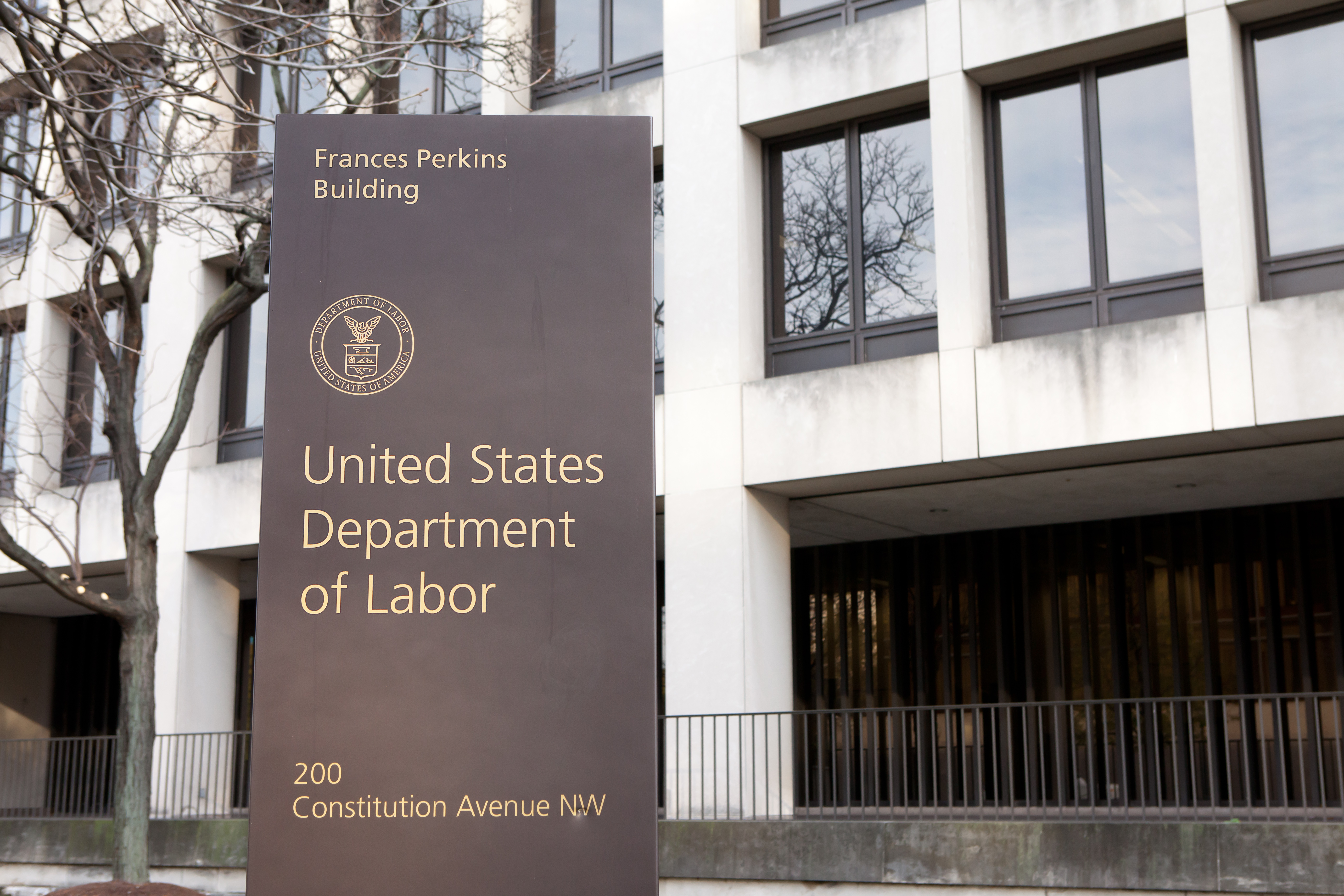
2020 will be remembered for the (ongoing) tumult of Covid-19. This year of challenge brought a new level of focus on ESG: Covid was just one catalyst for unprecedented attention from global investors across the broad landscape of the environment, social issues, and governance. At the same time, the challenges of greenwashing, entrenched behaviours within asset managers - and the lack of agreed definitions around what ESG investing actually "is" - all drive the need for effective ESG due diligence. Against this background, Castle Hall has identified 5 topics we have seen when conducting ESG due diligence on behalf of our clients over the past year.
1. A turning point for diversity and inclusion in asset management
Following the death of George Floyd and the growth of the Black Lives Matter movement, Diversity and Inclusion gained (overdue) attention from investors around the globe.
High profile asset managers pledged for more diversity on boards and executive suites. Giants such as BlackRock, State Street and Vanguard already set their expectations for companies in 2021: disclose metrics and efforts to boost racial and ethnic diversity in 2021, or face pushback during proxy season.
Meanwhile, as asset owners deploy trillions of dollars of capital and hire asset managers worldwide, new questions were raised as to the efforts those managers are making - or are not making - to improve diversity within their own organisations.
In Castle Hall's blog Men do the trading. Women do the Marketing, we highlighted Bloomberg's comment that the hedge fund industry is “one of the most White-male-dominated businesses in the mostly White-male world of American finance.” Castle Hall’s own dataset, gathered from our ESG Due Diligence platform, supports disparities in the representation of women between investment, business management and other support roles within the asset management industry:
Castle Hall's ESG Diligence process includes detailed consideration of diversity and inclusion issues. We focus not only on raw data, but also on the policies and behaviours of asset managers around recruitment, training, mentoring and promotion.
2. Asset manager behaviour and reputational due diligence
Asset owners, as fiduciaries acting on behalf of pension beneficiaries or end clients, must always review the behaviour of third party asset managers - both prior to hiring a manager, and then on an ongoing basis during the life of the investment mandate.
2020 continued to provide multiple examples of workplace misbehaviour across the asset management industry.
Effective reputational due diligence - review of media, regulatory filings, and legal databases - can identify cases where any manager in an investor's portfolio is facing reputational issues.
3. Fighting greenwashing, one taxonomy at a time
A 2020 report from the US SIF (US Forum for Sustainable and Responsible Investment) found that US-domiciled sustainable assets climbed to US $17.1 trillion at the start of 2020 –an increase of 42% since 2018. Aside from the rapid increase, this now suggests that fully one third of US assets under professional management are managed using sustainable investing strategies.
From Castle Hall's perspective, these numbers seem an over-estimation of the true size of ESG assets, at least in terms of assets managed with meaningful, committed ESG integration at each stage of the investment process. The problem here (aside from blatant greenwashing) is that what defines an ESG product differs across the industry. As such, funds that take the most simplistic steps, such as screening out specific industries, can still be labeled as “ESG” funds.
In Europe, regulatory bodies have been working to tackle false green claims. With its Sustainable Finance Action Plan, the European Commission (EC) aims to reorient capital flows towards a more sustainable economy, integrate sustainability into risk management, and foster transparency and long-termism. As part of that Plan, the EC published the awaited EU Taxonomy, a classification system for sustainable activities, in June. Focusing on climate change, water and marine resources, circular economy, air pollution control and biodiversity, the EU Taxonomy provides definitions on which economic activities can be considered environmentally sustainable.
Meanwhile, this year, investors prepared for the implementation of the EU Sustainable Finance Disclosure Regulation (SFDR), another pillar of the Sustainable Finance Action Plan. The SFDR will apply in March 2021 and require asset managers to report on the sustainability objectives of their funds. Transparency requirements include the consideration of sustainability risks, as well as adverse impacts of investments, and investors’ ESG approach.
4. Convergence in the Sustainability Reporting Landscape
Following a similar theme, numerous competing frameworks have emerged over the past decade to guide companies into disclosing sustainability-related information. The complexity of this “alphabet soup”, as it is often called, has been criticized for hindering companies and investors in the quest to disclose meaningful and actionable sustainability data.
In response to this, the CDP, the Climate Disclosure Standards Board (CDSB), the Global Reporting Initiative (GRI), the International Integrated Reporting Council (IIRC) and the Sustainability Accounting Standards Board (SASB) committed to work towards a more comprehensive sustainability reporting landscape last September. We also note the recent merger between SASB and the IIRC into the Value Reporting Foundation.
Such collaboration between "competing" groups was definitely necessary and is welcome development across the industry. In the end, investors might be able to get what they want – consistent, reliable ESG data - sooner than they thought. As per Janine Guillot, SASB's CEO, “reporting standards in the world of environmental, social and governance investing, long a thicket of competing frameworks, could converge within 12 to 24 months.”
5. The debate at the PRI and the Department of Labor: ultimately is it only about the money?
Perhaps the most interesting lesson from 2020 is the ongoing disagreement about ESG at its most foundational level. Is investing only about the money, or should investors think about E, S and G as well?
Castle Hall has reviewed the "history" of ESG, at a broad level, with great interest. Thinking simplistically, ESG has moved through three phases:
a) (Generally in the past) Investors should not consider ESG, as thinking about anything other than investment dollar and cent returns is a breach of fiduciary duty: the job of investors is to make money for their pension beneficiaries or end clients, period.
b) (Generally at the moment) ESG is synonymous with good management and the forward looking development of the economy (e.g. climate change). As such, investing by taking account of ESG factors will increase the money made for investors, especially over the long term.
c) (Potentially in the future) ESG investing is not just about making money - asset owners deploying trillions of dollars should also invest that money in ways which bring benefits to societies and humanity as a whole rather than just their own bottom line, considering factors such as equality, diversity and fair access to infrastructure.

In October, the United Nations Principles for Responsible Investment (PRI) launched a consultation on their 2021-24 strategic plan. The draft strategy, which is headlined “building a bridge between financial risk and real-world outcomes”, puts emphasis on investors’ leadership in building a sustainable future. Objectives outlined in the strategy include driving ESG incorporation, increasing stewardship ambitions, strengthening accountability, improving end-to-end sustainability data, addressing legal barriers to sustainable markets and working with signatories to deliver the Sustainable Development Goals (SDGs).
With this new strategy, the PRI aim to support the growing awareness around the impact investors can have. As per Martin Skancke (PRI Chair) and Fiona Reynolds (PRI CEO), “increasingly we see investors adding a third dimension to their thinking, building from a pure risk and return focus to also considering their role in driving real-world outcomes. This trend is only being accelerated by COVID-19 […]”. In other words, the PRI's agenda is to open the door towards "c" above - thinking about investment in broad, "real-world" terms, beyond only the monetary investment performance of the asset owner.
However, this new agenda was deemed “challenging” by signatory NBIM. This push back from Norway’s giant sovereign wealth fund (the largest in the world) reflected their earlier concerns:
“We consider the Blueprint’s chapter on ‘enabling real-world impact aligned with the SDGs’ as a departure from the Six Principles and PRI’s mission, which do not provide direction for the PRI to work on how investors should advance global development and support international political commitments,”....Furthermore, they said, the chapter could be interpreted as an expectation that financial investors should have dual or multiple objectives."
In other words, the Norwegian fund, in polite terms, states that "real-world impact" would be a 7th principal for the PRI, which would need to be voted on and win majority support from all the PRI signatories. Further, that "7th principal" would be that investors should consider broader, "real-world outcome" factors when designing their investment programs - including 'political commitments' - rather than only measuring the eventual money made from their investment programs.
The debate sparked reflection around the real motivations behind responsible investment. Carlos Joly, Co-Chair of the Expert Group that drafted the Principles, went straight for the jugular responding to the Norwegians, saying “the PRI’s mission and strategy has always been to improve conditions on the ground, not just to help investors make more money by taking ESG into account”.
As per Joly, “unless investors walk the walk, it’s pretty clear that they’ve signed up to UNPRI only because the ESG halo helps gather more assets and make more money rather than contribute to the UN’s mission.”
It is clear that the debate around what is truly the "purpose" of ESG investing is only just beginning.

In the United States, regulatory bodies took an opposite stand, strongly influenced by the Trump administration. In October, the U.S. Department of Labor finalized a rule clarifying that fiduciaries of private-sector retirement and other employee benefits plans must put beneficiaries’ financial interests first when allocating investments, rather than other ‘non-pecuniary goals and policy objectives’ - which includes priorities such as climate change and racial justice. We expect these changes will likely be reversed by the Biden administration taking office in 2021, but change will not be instantaneous.
It is also notable that the US legal changes mirror events at CalPERS, the largest pension plan in the country. In late 2018, Jason Perez, a California police sergeant, beat the plan's incumbent President in a board election, removing the high profile ESG advocate Priva Mathur. Perez was strongly motivated by opposition to CalPERS' high profile ESG initiatives. In an interview with Chief Investment Officer magazine, Perez, as one example, criticized CalPERS' earlier decisions to disinvest from tobacco, stating "if it’s legal and it’s no way connected to terrorism and it’s profitable, we should be in it." In other words, ignore ESG, as the only thing that matters is (a) above - make money.
For investors navigating this challenging terrain, we continue to recommend two core activities when considering allocations to external asset managers:
These Stories on ESG
Montreal
1080 Côte du Beaver Hall, Suite 904
Montreal, QC
Canada, H2Z 1S8
+1-450-465-8880
Halifax
168 Hobsons Lake Drive Suite 301
Beechville, NS
Canada, B3S 0G4
Tel: +1 902 429 8880
Manila
10th Floor, Two Ecom Center
Mall of Asia Complex
Harbor Dr, Pasay, 1300 Metro Manila
Philippines
Sydney
Level 15 Grosvenor Place
225 George Street, Sydney NSW 2000
Australia
Tel: +61 (2) 8823 3370
Abu Dhabi
Floor No. 15 Al Sarab Tower,
Adgm Square,
Al Maryah Island, Abu Dhabi, UAE
Tel: +971 (2) 694 8510

Copyright © 2021 Entreprise Castle Hall Alternatives, Inc. All Rights Reserved.
Terms of Service and Privacy Policy